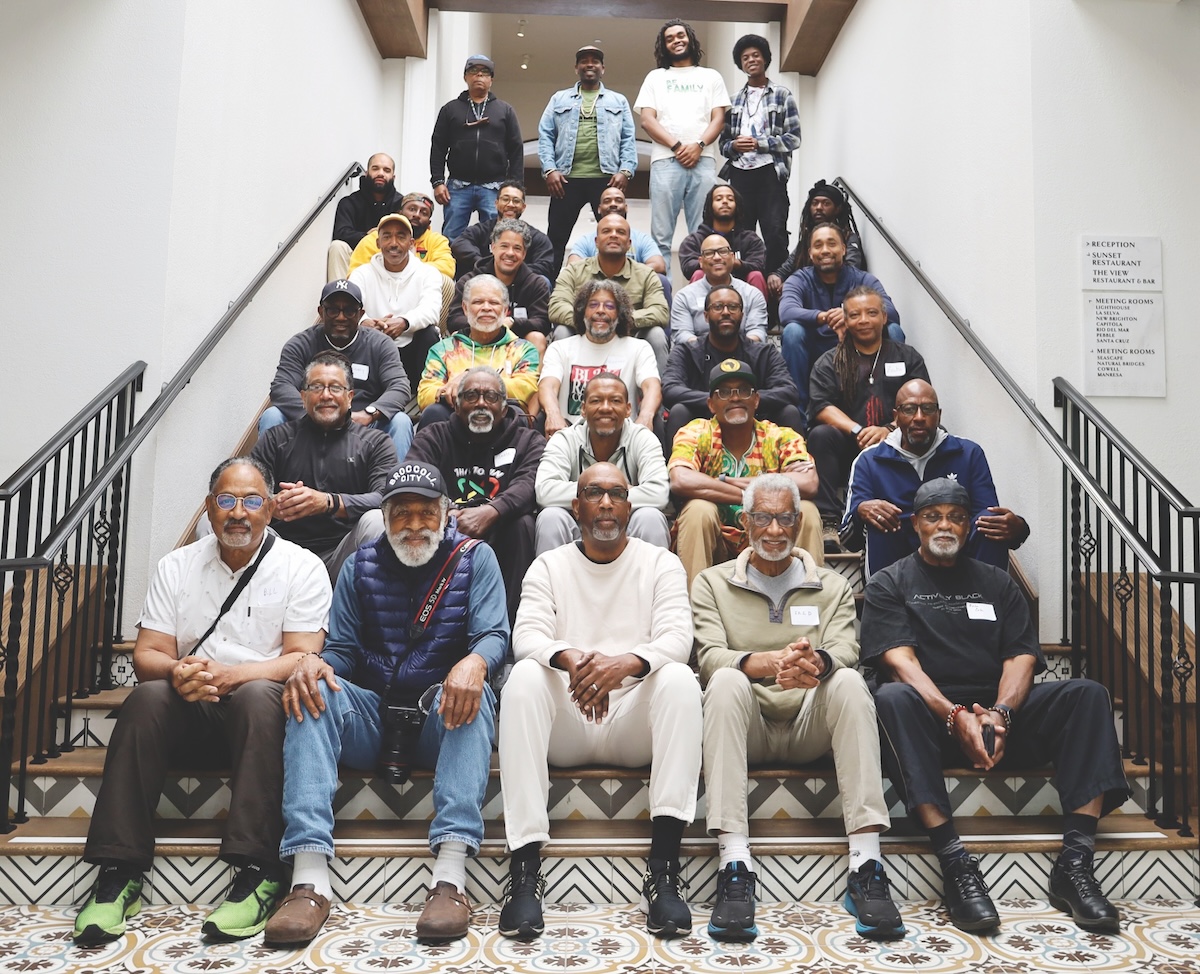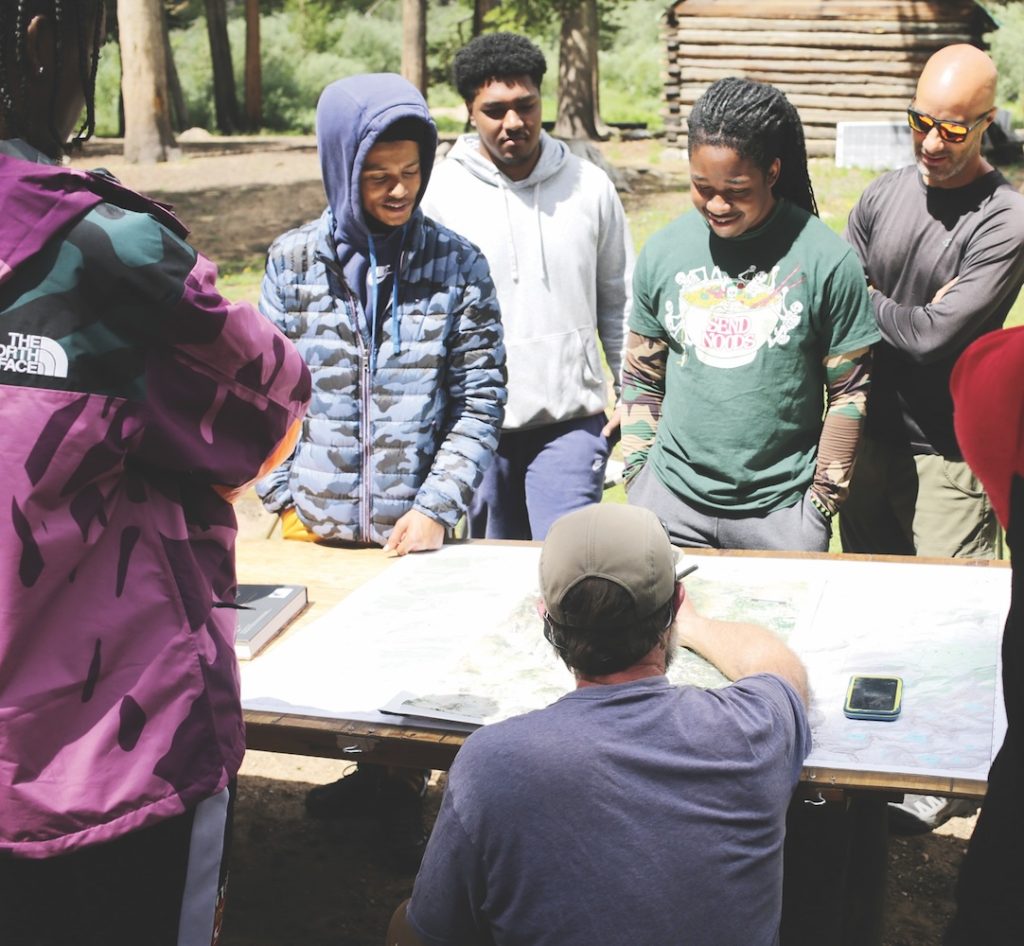Giving Black Boys and Men Multigenerational Support

How can we ensure young people have healthy, promising futures? By giving them the resources, relationships, and environments that support their wellness. Brotherhood of Elders Network (BOEN) does exactly that: It provides young people with the tools to thrive, led by the guidance of a multigenerational network of Black men.
“We do as much as we can to advocate for the needs, the aspirations, and the interests of African American boys and men,” says Baba Greg Hodge, the CEO of BOEN.
For generations, Black communities have faced the worst of systemic harms, from being displaced from long-term homes to underinvestment in majority Black schools, neighborhoods, and community spaces. Brotherhood of Elders Network partners with local leaders and organizations to reshape systems and make real change possible.

Before BOEN formally launched in 2011, community advocates came together to discuss their vision for their neighborhoods, and the role they should play to make it happen. From there, BOEN developed a framework. It focuses on the well-being of families, connections to African heritage, and partnerships with local organizations. An intentionally intergenerational network, BOEN uses a cascading mentorship model, including elders in their mid-80s, all the way down to teenagers, and all ages in between. The organization embraces the leadership and expertise of youth, elders, and adults to co-create community-centered programs and initiatives.
An early grant led to the launch of BOEN’s “The Art of Being a Black Man” curriculum. The community-informed curriculum exposes participants to culturally-relevant education, music, and dance, all while they receive mentoring, peer support, and greater insight into the civic issues that impact their everyday lives. The holistic curriculum became a resource for Oakland Unified School District’s Office of African American Male Achievement, providing students with resources and guidance for navigating early manhood.
BOEN’s programs and initiatives support the wholeness of Black men, boys, and families, from ancestry and culture to education and leadership development. BOEN’s Ubuntu fellows have traveled to South Africa, allowing them “to see a bigger world, a bigger community,” Hodge says. Those at-risk for not attending college pursued higher education after the trip, while others fulfilled their dream of entrepreneurship.
With the San Francisco Foundation, BOEN began the Bese Saka Initiative to support Black-led organizations in the region. BOEN also developed the Black Youth Development Book, a directory of Black-led youth organizations providing academic support, mentoring opportunities, youth employment, and more.
“One of our strong suits is we help folks find the services they need,” Hodge says.
During the COVID-19 pandemic, BOEN started the African American Response Circle, a collaboration of organizations concerned about how officials were responding to the coronavirus in the Black community. They met weekly, ultimately raising nearly $1 million, channeling resources back into the community when they needed it most.
BOEN leaders have collaborated with the City of Richmond’s Office of Neighborhood Safety by mentoring justice-impacted youth on the importance of finishing school, job training, and healthy relationships. When the City of Oakland began a violence prevention program several years later, BOEN leaders stepped up.
The network’s newest efforts include its collaborative work in a 40×40 block area of East Oakland with Roots Community Health, which will focus on infant and maternal health. With East Oakland Youth Development Center, BOEN is concentrating on early childhood education, community schools, college and career exploration, and the Black teacher pipeline. In partnership with Black Cultural Zone, the collaborative will focus on housing and economic development.
As BOEN evolves, its core intergenerational support never waivers.
“We grieve with each other,” Hodge says. “We laugh together. It’s the relationships that matter.”
Brotherhood of Elders Network
Donate now!www.brotherhoodofelders.net
Director of Fundraising: Quinton Sankofa
(517) 974-4162
Mission
The Brotherhood of Elders Network is an intergenerational network of men of African ancestry who foster environments where Black boys and young men are empowered to flourish.
Begin to Build a Relationship
We know you care about where your money goes and how it is used. Connect with this organization’s leadership in order to begin to build this important relationship. Your email will be sent directly to this organization’s Director of Development and/or Executive Director.
Not only has the Brotherhood of Elders Network shaped me as a leader, it continues to demonstrate the power and possibility of an intergenerational Black-led organization. One of our main priorities is to invest in local community leadership, and few organizations exemplify this better than the Brotherhood. I urge you to join us in supporting them and fueling a movement that uplifts us all.
Lifting Up the Generation Behind You
Donations to Brotherhood of the Elders Network (BOEN) allow it to continue to invest in historically Black East Oakland. Every dollar helps BOEN provide Black boys, men, and their communities with the resources and relationships that support their wellness for generations.
“Anybody who is compelled to give to us is essentially making an investment in the future of young people,” Hodge says.
Key Supporters
Dr. Robert Ross, former CEO,
The California Endowment
Dr. Noha Aboelata, CEO,
Roots Community Health
Brandi Howard, CEO,
East Bay Community Foundation
Ray Colmenar, CEO,
Akonadi Foundation
Carolyn Johnson, CEO,
Black Cultural Zone CDC
David Harris, CEO,
Urban Strategies Council
Chris Iglesias, CEO,
The Unity Council
George Galvis, CEO, CURYJ
Susan Batten, CEO, ABFE
Fred Blackwell, CEO,
The San Francisco Foundation
Yvette Radford, SFF Trustee, and
Vice President, External
& Community Affairs,
Kaiser Permanente
Selena Wilson, CEO, East Oakland
Youth Development Center
Hector Sanchez Flores,
Executive Director, National
Compadres Network
Prof. Shawn Ginwright, Author
and Jerome T. Murphy Professor
of Practice at Harvard Graduate
School of Education
Robert Phillips, CEO,
Baywell Health (formerly West
Oakland Health Council)
David Muhammad, CEO,
National Institute of Criminal
Justice Reform
